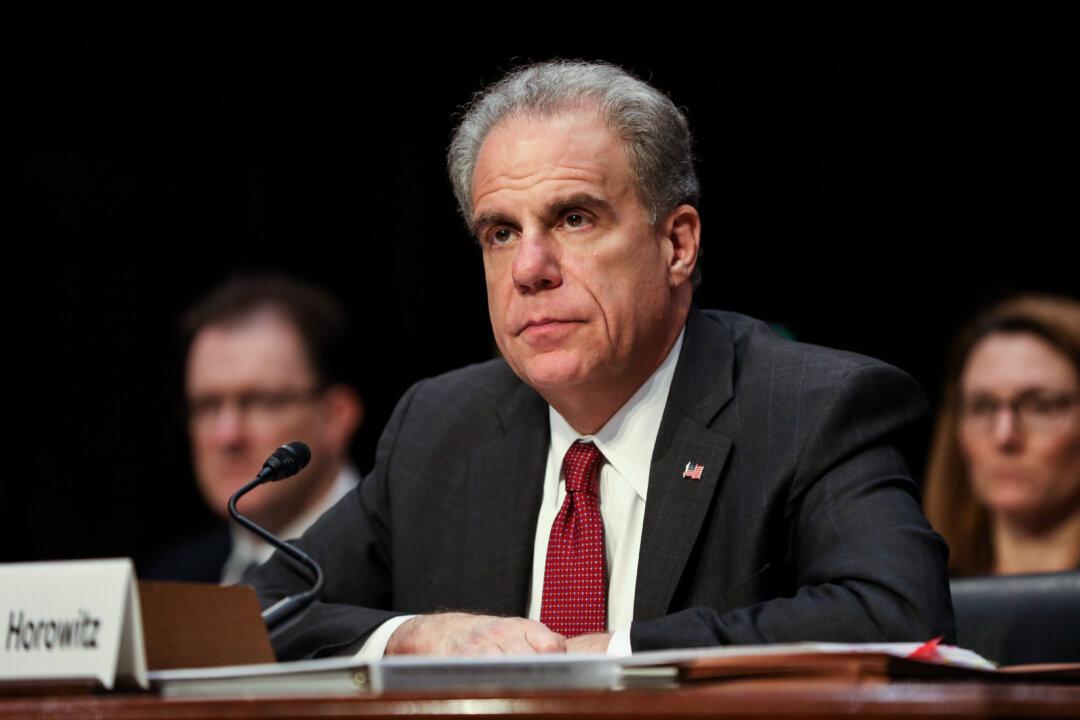Department of Justice Inspector General Michael Horowitz on Wednesday left the door open to the possibility that political bias played a role when FBI officials launched a probe—codenamed Crossfire Hurricane—into a Trump campaign aide in 2016.
Sen. Ron Johnson (R-Wis.), the head of the Senate Homeland Security Committee, questioned Horowitz about his probe into the FBI’s FISA application to surveil former Trump campaign aide Carter Page for as long as a year.





